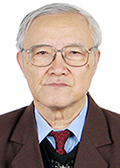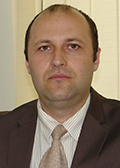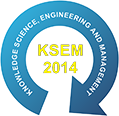Invited Keynote Speakers
 |
Ruqian LuAcademy of Mathematics and Systems Science, CAS |
Biography Ruqian Lu is a professor of computer science of the Institute of Mathematics, Academy of Mathematics and Systems Science, at the same time an adjunct professor of Institute of Computing Technology, Chinese Academy of Sciences and Peking University. He is also a fellow of Chinese Academy of Sciences. His research interests include artificial intelligence, knowledge engineering, knowledge based software engineering, formal semantics of programming languages and quantum information processing. He has published more than 180 papers and 10 books. He has won two first class awards from the Chinese Academy of Sciences and a National second class prize from the Ministry of Science and Technology. He has also won the Hua Loo-keng Mathematics Prize from the Chinese Mathematics Society. Korchestration and the Korc Calculus Abstract: The orchestration technique has been popular in various fields of computing science and has got different names, such as computation orchestration, service orchestration, business orchestration, cloud orchestration, etc. Most of them have similar but slightly different meanings. In accordance with this, languages programming orchestration such as Orc, BPEL and Now have been developed. However, we have noticed there are two important aspects that are still less studied in orchestration research. They are orchestration for full cycle knowledge service and big data driven orchestration. We propose the concept of korchestration, which is short for knowledge orchestration, to fill this gap. At the same time we introduce the Korc calculus as a conservative extension of Orc calculus towards application of orchestration techniques in the above mentioned two areas. The various new features of Korc include weakly open world assumption, abstract knowledge source assumption, Boolean site calls, parallel logic programming, massive parallelism, fault tolerant computing, etc. |
|
 |
Gheorghe Cosmin SilaghiBabes-Bolyai University of Cluj-Napoca, Romania |
Biography Gheorghe Cosmin Silaghi is professor and chair of Business Information Systems at Babes-Bolyai University of Cluj-Napoca, Romania. With a joint background on Business Informatics, Computer Science Engineering and Artificial Intelligence, he approached topics from distributed systems with tools from economic theory and artificial intelligence. His main research interests include resource management, dependability and security in heterogeneous computing environments like clouds, grids and peer-to-peer systems, developing models for resource negotiation and reputation. Multi-criteria resource negotiation and scheduling for hybrid distributed computing infrastructures Abstract: Assembling and jointly using different types of computing infrastructures like grids and clouds is an increasingly met phenomenon. To achieve this goal, research communities are building bridging technologies between the various sorts of infrastructures. These infrastructures are characterized by positive attributes like cost effectiveness, reliability, high performance and greenness. With this respect, joint commercial exploitation and increased user satisfaction represent contradicting challenges. To advance towards these goals, we will discuss two aspects of the interaction between resource providers and consumers: negotiation and scheduling in a multi-criteria setup. While both types of players possess limited knowledge about the opponents, we will design two interaction mechanisms allowing for service levels establishment and jobs placement, given the mitigation between providers and consumers. |
|
 |
Pericles LoucopoulosUniversity of Manchester, UK |
Biography Professor Loucopoulos holds a B.Sc. in Mathematical Sciences and M.Sc. and PhD degrees in Computer Science. After a spell in the City during which time he was involved in developing state of the art computer-based information systems for financial applications he moved to Manchester to take up a post at UMIST where in 1990 he was elected to a Chair in Information Systems. He currently holds a fractional appointment at the Manchester Business School and at Harokopio University of Athens. He has held visiting appointments at Université de Paris I – Sorbonne (France), the University of the Aegean (Greece), the Delhi Institute of Technology (India), the Athens University of Economics and Business (Greece) and the University of Technology (Malaysia). He has acted as a scientific expert for UK, Greek, Italian, Austrian, Canadian, Belgian and Swiss Governmental institutions. Enterprise Knowledge Modelling: Facilitating Flexible Dynamically Changing Systems Abstract: Turbulence is in the nature of business environments. Changes brought about because of different requirements such as social, political, technical and economic, exert pressures on organisations to respond in a timely and cost effective way to these challenges. In such an unstable environment information system developers are challenged to develop systems that can meet the requirements of dynamically changing organisations in a flexible manner. |
|



